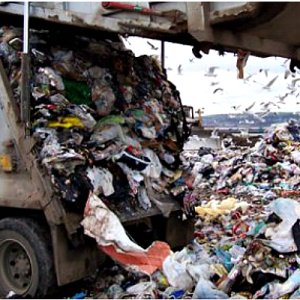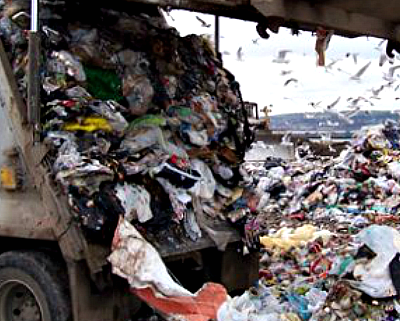A Case for the Environment: Sustainability, Solidarity & Spirituality Are Intrinsically Linked
 BY RACHEL KELSO | December 1, 2014
BY RACHEL KELSO | December 1, 2014
Consider this: If everyone in the world lived the same way as I do, we would need two and a quarter earths to support us.
We—myself definitely included—often take our lifestyle for granted. However, the reality is that it is supported by all manner of resource-intensive, unsustainable practices: We remove the tops of mountains and displace them in valleys, leveling out the earth; we pump grey clouds of toxins into the air, causing respiratory illness rates to skyrocket; we shoot chemicals into the ground to obtain natural gas, contaminating drinking water; we cut down two thousand trees a minute in an incredibly intricate system of tropical rainforests, reducing biodiversity and the opportunity to further natural medicinal discoveries. We forget that this is the only earth we have, and that once it’s gone, it’s gone.
This semester, I’m involved in a research project analyzing waste on campus. The cognitive dissonance is alarming – what people think they waste is so much less than what they waste in reality. After learning about this disconnect, I analyzed my lifestyle and found ways to live more sustainably. I’ve begun composting, and I unplug small appliances. I could still do so much more: I could limit my showers to a strict five minutes, buy clothes made of sustainable materials, and eat organic, locally grown foods. There is an endless list of simple ways to live more sustainably. This is not just for hippies – we have an obligation to respect the natural world and understand our place within it.
In Genesis, God gave humans dominion over the earth. This phrase has been misconstrued to mean that humans are symbolically more significant than the earth, that the environment is nothing more than a means for humans to increase their own net worth. This isn’t what God intended; he asked us to love the earth and take care of it, because it is God’s gift that sustains us.
People seem to forget where their material goods come from. Nothing we own comes out of thin air; it is mined, sheared, gathered, cultivated, melted down, extracted. We cannot make a shirt without a sheep. We cannot have money without mines. I’m not saying we need to abandon our way of life, flee to the woods, and learn to build our own cabins, but I am saying that we need to think consciously about our habits. If we make an effort to live more simply, we not only preserve resources, but also learn to think globally about where our goods come from.
We must realize that the way we are treating the earth cannot last forever. Even if we were to believe that the point of having the earth is to exploit it until we have squeezed all the life out of it, it must be obvious that we don’t have much time left. What will we leave for our children, and their children?
A culture of consumption is not only harmful to the environment, but also neglects our brothers and sisters who have less access to the resources we do. The more we consume and degrade the environment while increasing our own wealth, the more we prevent our neighbors in developing regions from having the same opportunities we have. If we acquire all the world’s resources right now, no one will be able to have them in the future. This is a call for sustainability as a form of solidarity. Those who live in developing regions have done nothing to deserve a barren earth. Just because we have been fortunate enough to live somewhere that provides material wealth does not mean we have the right to steal resources from people who have nothing from the start.
God calls us to preserve the natural environment to the best of our ability. Sustainability is carefully using natural resources while still reserving some of those resources for continued development. This means that we cannot use all our resources at once for a singular purpose. We must think critically about where these resources are going and what we might gain from them. Material goods are not the end-all, be-all of life; in fact, they effectively detract from our ability to strengthen our spirituality. The Jesuits advocate for simplicity, and this lifestyle is what allows followers of Christ to build divine ties without the mundane distractions of this world.
Rachel is a sophomore at Loyola University Chicago and is a double major in Anthropology and International Studies. Rachel went to a Jesuit high school as well, and considers the Jesuits a major contribution in her passion for social justice. Specifically, Rachel is most interested in environmental sustainability, immigration, and poverty/hunger. She’s originally from Indianapolis, IN. She hopes to work as a volunteer coordinator in international nonprofits, and has a particular love for all things Latin America. Rachel is an active member in Loyola’s Community Service and Action Office as a leader of Loyola 4 Chicago and a Hunger Week Team Member. In her free time, Rachel enjoys writing, drinking copious amounts of tea and coffee, and discovering new music.
Twitter: LoveRachelKelso










Leave a Reply
Want to join the discussion?Feel free to contribute!